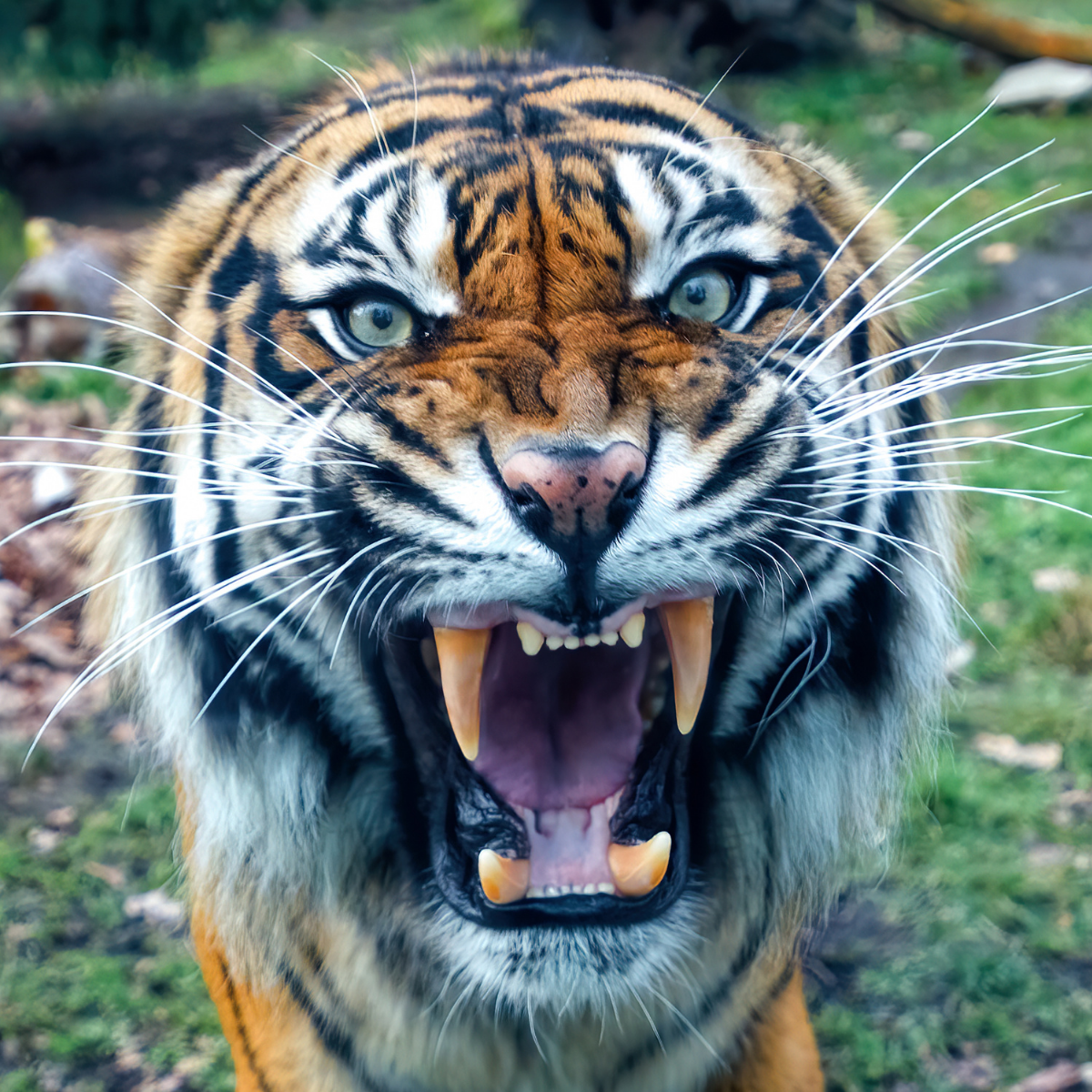The purpose of business is to make a profit, but thanks to climate change, there is a new nuance, and the new IPCC report illustrates the need for ESG.
In a recent interview, Lord Browne, the former CEO at BP, said that “gone are the days when you can say you are solely in business to make money,” (37 minutes in.)
For the former boss of such a massive oil company — a company that is an example of capitalism in its purest — that is quite the statement.
But it does illustrate an important point; pure, ruthless, profit-obsessed capitalism isn’t always the best outcome.
Game Theory and ESG
Let’s illustrate this with an example from Game Theory, the classic Prisoner’s Dilemma. You and your accomplice have together committed two crimes, a serious crime that carries a 20-year prison sentence and a not so serious crime that might only see a mild punishment. You will only be found guilty of the more serious crime if either you or your accomplice confesses. The police offer you a deal, confess, and you will be pardoned. But if your accomplice confesses too, you both go to prison for five years. What do you do!
Charles Nash, the mathematician who you may be familiar with via the movie The Beautiful Mind, starring Russel Crowe, came up with a mathematical formula called the Nash Constant for picking the optimal option. But the Nash Equilibrium assumes you don’t trust your accomplice; you assume they will confess, so to reduce your sentence, you confess too in anticipation of this.
There is a more fun example: Adam and Eve go for a country walk. There are five pubs en-route: ‘in order, they are ‘The Rational Choice.’ ‘The Second Contract,’ ‘The Foole,’ ‘The Sensible Knave,’ ‘The Extra Trick’ and ‘The Triumph of Reason’.
Adam and Eve have different preferences; for example, Adam favourite pub is the ‘Extra Trick’ and Eve’s favourite pub is ‘The Triumph of Reason.’ But they both broadly agree they prefer the pubs further out.
This chart shows their respective order of preference.
|
Order of
pubs |
Order of
Adam’s preferences |
Order of
Eve’s preferences |
|
The
Rational Choice |
Fifth |
Least
favourite |
|
The
Second Contract |
Least
favourite |
Fourth |
|
The
Foole |
Third |
Fifth |
|
The
Sensible Knave |
Fourth |
Second
favourite |
|
The
Extra Trick |
Favourite |
Third |
|
The
Triumph of Reason. |
Second
favourite |
Favourite |
There are some rules. Whenever either Adam or Eve declare they want to stop, they must do so. They are both aware of each other’s preferences, and they cannot negotiate or agree on a plan in advance.
As Adam prefers the ‘The Extra Trick’ to ‘The Triumph of Reason’, he will want to stop at this pub.
But Eve will realise this, and since she prefers the ‘The Sensible Knave’ to the ‘The Extra Trick’, she will want to stop there. But Adam prefers the ‘The Foole’ to the ‘The Sensible Knave’, so they will want to stop there. So in anticipation of this, Eve will choose ‘The Second Contract,’ so Adam elects for them to stop at the ‘The Rational Choice.’
In other words, by following the Nash Equilibrium acting solely in their selfish interest, they stop at Eve’s least favourite pub and Adam’s fifth favourite pub.
If instead, Adam and Eve had acted altruistically and trusted each other, they would have gone all the way and stopped at ‘The Triumph of Reason,’ a pub they both much preferred to the ‘The Rational Choice.’
This is the problem with totally selfish behaviour, the principle of which the theory of capitalism is built upon; the outcomes are seldom optimal.
For broader context, see David Hume and the sensible knave:
Take another example; Keynes’s paradox of thrift. In a recession, we tend to save more — that is the logical thing to do when focusing on oneself. But if we all save more, the recession gets worse. The selfish, Nash Equilibrium thing to do is save more, but if instead, we all spend more, we will be collectively better off.
One more example: mask-wearing. Mask’s don’t protect the wearer, or if they do, the protection is marginal. And if you are anything like the author, you don’t like wearing a mask. So the selfish Nash Equilibrium thing to do is not to wear a mask. But wearing a mask does offer some protection to others if you have Covid (and maybe not realise it.) So if we all wear a mask, then collectively, we are better off.
Climate change and ESG
Recycling is time-consuming. Dropping litter saves us the hassle of having to look for a bin. If we all drop litter, we all end up worse off.
Likewise, reducing our carbon emissions carries a cost.
If the purpose of business is solely to maximise profit in a way that assumes everyone else is acting selfishly, then forget climate change and doing ‘your bit.’
Likewise, ESG — Environmental, Social, Governance, clashes with the maximum profit motive described by the Nash Equilibrium.

The customer and ESG
The core case made for ESG is often that customers want it. Your customers expect the companies they buy from to uphold specific ethical standards — so, if you don’t oblige them, you will lose business.
Likewise, some investors are similarly motivated.

Climate change, as highlighted by the IPCC report, is becoming a significant threat to society.

But the greed is good; a profit maximising company might see an opportunity to get an advantage over rivals by ignoring costly ESG practices.
However, this risks seeing a backlash from customers — that is the superficial reason why the IPCC report illustrates the need for ESG.

First mover advantage
There is a second reason why a company may want to adopt ESG and act with a conscience. The forward-thinking company may anticipate future regulation or even fines for poor ESG practice. It may thus reason the sooner it puts ESG into practice, the more competitive it will be in the future.
Authenticity
Then there is the issue of authenticity. For the reasons explained above, a company may conclude that applying ESG is essential, but achieving this requires a CEO or board that genuinely believes in ESG. In this way, authenticity is created.
Tit for Tat
But let's set those arguments aside. Let's assume that applying ESG carries a cost.
Returning to Game Theory..
The researcher Robert Axelrod came up with an alternative to the Nash Equilibrium — what he called Tit for Tat. Under Tit for Tat, each individual assumes their partner in any particular situation can be trusted. So the arrested criminal trusts the fellow criminal to stay quiet. Adam trusts Eve and Eve trusts Adam to select the pub with greater sympathy regarding what the other wants.
Axelrod assumed that Prisoner Dilemma situations are repeated over and over again. He worked out that if we trust others to think of the greater good but punish those who don’t with a sanction, we end up with a better outcome.
So that is Tit for Tat. There are multiple variations on this theory, but we don’t need to go into them here.
The theory is incredibly profound. It shows that a kind of altruistic behaviour is often more efficient. And as Richard Dawkins showed in the Selfish Gene, the natural world often sees apparently altruistic behaviour.
That is why a vampire bat will throw up its dinner in order to feed another hungry vampire bat. Gross example but altruistic nonetheless.
The theory goes like this; if Tit for Tat creates better outcomes, wouldn’t evolution hardwire a tendency towards altruism into our DNA?
The theory suggests that people can act genuinely unselfishly and altruistically automatically — without any deviousness. It rather contradicts the ideas of Ayn Rand with her focus on the needs of individuals.
And Tit for Tat applies to business too
Setting aside the possibility that customers might demand a company that follows ESG principles, set aside the imperative to prepare for future regulation, the theory of Tit for Tat provides another reason for a company to sacrifice profit maximisation.
If a company assumes its competitors follow a similar, more altruistic approach, then it and its competitors will be better off.
A company might reason it could make more money by ignoring climate change imperatives. But if all companies did that, as the IPCC report clarifies, the outcome would be terrible for everyone, including the company concerned.
That is why making money is no longer the sole purpose of business. Instead, just like the vampire bat, by acting responsibly for society as a whole, the ultimate outcome is better for all, including the company, which still maximises profit in the longer term.






Related News
Navigating the ESG backlash
May 08, 2024
Something rather important is lying hidden, and one of our guests this week knows how to find it.
Apr 23, 2024
If this is an AI bubble, then heed the lessons of the dotcom bubble
Apr 07, 2024